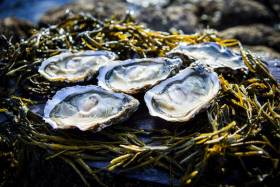Displaying items by tag: ICMSS
Galway Hosts Shellfish Safety Conference This May
#Shellfish - Galway will host the 11th International Conference on Molluscan Shellfish Safety (ICMSS 2017) this summer from Sunday 14 to Thursday 18 May.
ICMSS 2017 will be hosted by the Marine Institute in association with the Food Safety Authority of Ireland, Sea Fisheries Protection Authority, Irish Shellfish Association, National University of Ireland and Bord Iascaigh Mhara in the Bailey Allen Hall at NUI Galway.
This 11th conference in the biannual forum series, subtitled ‘Protecting consumers, assuring supply, growing confidence’, offers an important multidisciplinary interface between regulatory, scientific and industrial representatives of the international molluscan food safety community. Unusual, emerging and novel shellfish risk factors will be discussed, offering new information and solutions.
ICMSS 2017 will include keynote presentations from acclaimed international experts in the area. A series of workshops will be held in conjunction with the event on Friday 19 and Saturday 20 May which will be of particular interest to shellfish safety professionals and students, including microbiologists, toxin chemists, toxicologists, marine scientists, regulators, policy makers, food safety specialists, environmental health officials, engineers, environmental managers, academics and undergraduate and postgraduate students.
More information can be found on the ICMSS 2017 website. The programme is available to as a PDF to read or download HERE.
























































